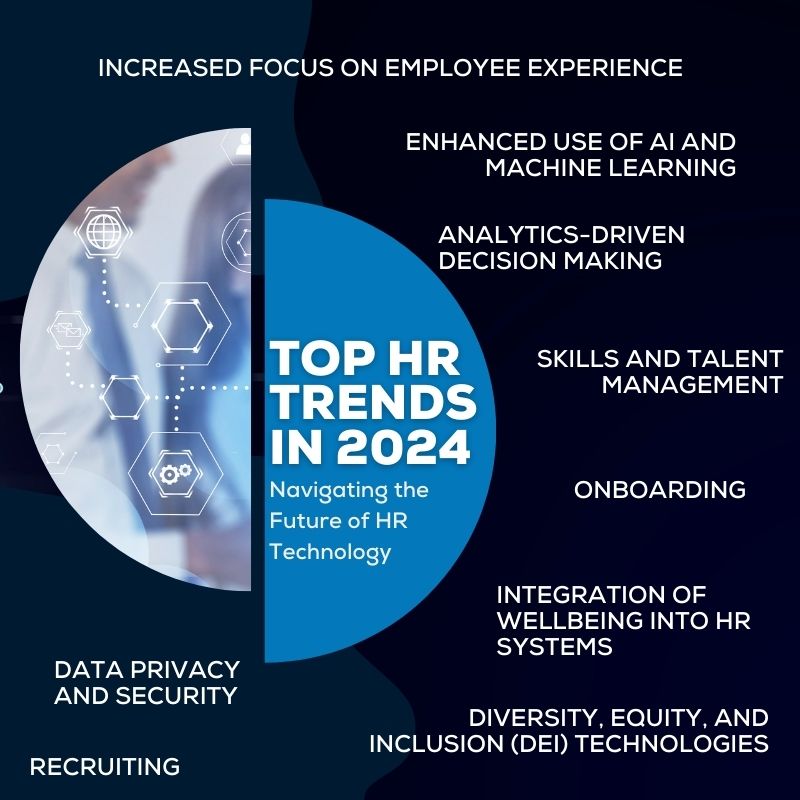The landscape of Human Resources is poised for dynamic changes in 2024, driven by data insights, AI integration, and the keen focus on skills and employee experience. The technology landscape is quickly evolving and being purposeful in aligning HR digital strategies with broader business goals and strategies is paramount.
Gartner reports 89% of HR leaders plan to increase or maintain HR technology budgets. Similar to 2023, many HR technology leaders will focus on optimization (including cost optimization) of existing investments and solidifying their data strategy (a solid data foundation is critical for AI and analytics capabilities.) Digital strategies and roadmaps will prominently include employee experience, AI, analytics, skills and talent management and internal talent marketplace offerings.
To help organizations stay ahead of and optimize evolving HR technology, the Minneapolis-based finance, accounting, HR and project management consulting firm Brillect sat down to talk with HR digital strategy expert Stacey Lovell. As a Principal Advisor with Brillect, Stacey provides expertise, guidance and customized solutions to clients and keeps her pulse on the latest trends. Today, she’s sharing her take on the key 2024 trends that will shape the future of HR.
Shaping the Future of HR- The Top HR Trends in 2024
1) Increased Focus on Employee Experience: Improving the overall employee experience is expected to be a top priority. The development of more robust self-service platforms, where employees are empowered to manage their personal information, benefits, and career development opportunities are table stakes. This involves meaningful and personalized employee journeys supported by mobile enabled technology to create engaging, intuitive, and employee-friendly HR processes. Many industry leaders agree with HR Executive and HR research analyst Josh Bersin in that, “The success or failure of every HR technology product today, depends entirely on how easy it is for employees to use, how seamlessly they can incorporate it into their flow of work and how effectively it helps them get their jobs done.”
2) Enhanced Use of AI and Machine Learning: According to Digital HR strategist Jason Averbrook, talent leaders who experiment with AI will help their organizations gain a huge advantage over those that wait. AI and machine learning are predicted to play a significant role in HR functions such as recruiting, internal mobility, employee experience, employee listening, and personalized learning and development plans. The best way to prepare is to understand the basics of AI and Machine Learning, identify relevant use cases, develop a data strategy (again, good data is crucial for AI effectiveness), focus on ethics and bias prevention, upskill your HR team, choose the right partners and vendors and then pilot, experiment, review and adapt.
3) Analytics-Driven Decision Making: HR analytics will become more sophisticated, enabling HR professionals to make strategic data-driven decisions regarding workforce planning, talent management, and employee retention strategies. Strategic HR organizations use data and insights to demonstrate their value, expanding insights past typical turnover and compensation reports.
4) Skills Management and Talent Management: This has been a tough nut to crack and unfortunately, there isn’t a silver bullet. Building a skills taxonomy is hard, but when done well, it can yield an impressive return on investment in terms of identifying relevant skills to do the work and then matching people to the tasks, building development plans, etc. Skills have become a currency and investing in skills management and integrating it with talent management processes can proactively bring visibility to skill gaps, identify adjacent skills, elevate the value of focused learning and development, unlock productivity, boost diversity, and enhance engagement and wellbeing.
5) Recruiting: While recruiting has temporarily slowed down, the battle for skilled talent is real and employers are broadening their net to build diverse pipelines of talent and are homing in on candidate experience to set the hook. On top of it all, Gen Z has higher expectations on how, when and where they work. Candidate experience, recruiting marketing and determining how to capitalize on AI will be getting a lot of air time in 2024.
6) Onboarding: Organizations will place a significant emphasis on modernizing their candidate and employee onboarding processes to meet the expectations of a changing workforce. This involves leveraging digital and human-centric onboarding journeys. New approaches include virtual onboarding sessions, digital documentation, and customizable and interactive onboarding experiences to enhance engagement and productivity from day one.
7) Data Privacy and Security: With the growing reliance on digital HR tools, the importance of data privacy and security is expected to increase. We anticipate companies will invest more in secure HR tech solutions to protect sensitive employee data.
8) Integration of Wellbeing into HR Systems: There’s an anticipation that more HR systems will integrate wellbeing and mental health resources as a standard feature, recognizing the importance of employee health for overall productivity and engagement.
9) Diversity, Equity, and Inclusion (DEI) Technologies: The use of technology to enhance DEI initiatives is predicted to be a key focus. This could include tools for unbiased recruiting, promoting inclusivity in the workplace, and tracking progress on DEI goals.

Transforming Trends into a Competitive Advantage
Our advice: Don’t feel you have to pivot after every shift or change. Determine where you want to be differential or excellent vs. where you want to be good enough. And whatever technology you’re leveraging, make sure you keep your employees at the center with a focus on how the experience feels, transparency, communication, relationships, and data-driven reporting, especially when it comes to your talent strategies. That’s not a trend at this point, it’s best practice.
Most importantly, foster a Culture of Acceptance to prepare HR and the broader workforce to adopt digitization. Communicating the benefits, addressing concerns, and fostering a culture that embraces technological change can significantly impact the successful integration of technology in HR.
Navigating Digital HR with the Right Partner
Brillect’s team of top-notch HR consultants is well equipped to help organizations navigate the future of HR technology by offering the following services and support:
1) Strategic Planning and Alignment:
-
- Aligning your HR digital strategies with your broader business goals and strategies and identify how HR technology can contribute to achieving organizational objectives.
2) Technology Roadmaps:
-
- Developing technology roadmaps that incorporate employee experience, AI, analytics, skills, talent management, and internal talent marketplace offerings and anything else that is of high importance in your organization.
3) Employee Experience Enhancement:
-
- Designing and implementing employee-focused solutions that improve the overall employee experience. This may involve creating self-service platforms, mobile-enabled technologies, and personalized employee journeys.
4) HR Analytics Advancement:
-
- Enhancing your HR analytics capabilities, enabling your organization to make data-driven decisions in areas such as workforce planning, talent management, and employee retention.
5) Skills and Talent Management:
-
- Developing skills taxonomies and the integration of skills management with talent management processes. This includes identifying skill gaps, creating development plans, and promoting diversity and engagement.
6) Recruiting Strategies:
-
- Adapting your recruiting strategies to meet the changing talent landscape. This may involve candidate experience improvement and leveraging AI in recruiting.
7) Onboarding Experience:
-
- Enhancing candidate and employee onboarding processes to create a frictionless and engaging experience. You can create personalized onboarding journeys that incorporate interactive elements and facilitate a frictionless transition for new hires.
8) Data Privacy and Security:
-
- Helping you select and deploy secure HR tech solutions to protect sensitive employee data, addressing concerns related to data privacy and security.
9) DEI Technologies:
-
- Leveraging technology to enhance diversity, equity, and inclusion initiatives. This includes implementing tools for unbiased recruiting and tracking DEI progress.
10) Change Management and Culture Transformation:
-
- Fostering a culture of acceptance and digitization adoption. Brillect’s experts can provide change management strategies, communication plans, and employee training to ensure successful technology integration.
11. Continuous Improvement, Process and Tool Optimization:
-
- Helping you continuously assess, adapt and optimize your HR technology strategies and tools ensuring they are up-to-date, efficient, and aligned with the latest industry standards. This includes evaluating and improving processes and overall functionality to enhance the user experience and productivity of employees.
Partnering for Your Success in Digital HR
Looking for an expert HR partner to help you navigate these trends in 2024? Let Brillect’s team of top-notch HR professionals light the way.
Contact us to connect with one of our HR experts today or learn more about how we can bring a fresh set of eyes to your HR strategy in the new year.






